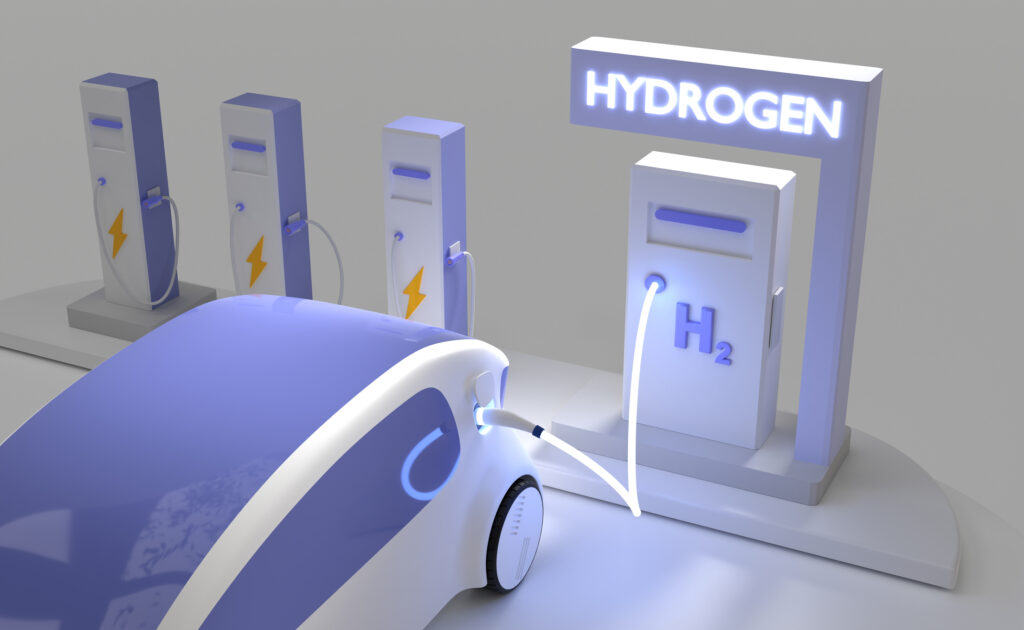Honda recently showcased its commitment to sustainable transportation with advancing its hydrogen fuel-cell module. Per Green Car Reports, the automaker revealed its plans to power its CR-V model using this cutting-edge technology. Doing so reflects the promise of a cleaner, greener future for other areas of the automotive industry, as well as for backup power systems.
Honda’s Hydrogen Fuel-Cell Module Powers the CR-V
Honda’s announcement included their intent to apply this technology in Europe for “passenger cars, commercial vehicles, construction equipment, and stationary power generation.” With that in mind, it doesn’t come as a surprise that they have chosen their CR-V as part of this endeavor, especially considering the model’s consumer popularity.
Commercial vehicles also reap rewards. Fleets interested in “going green” benefit from the fact that hydrogen’s only byproduct is water vapor. They also avoid concerns related to battery-electric vehicles — specifically, the latter’s longer recharge cycles and limited driving ranges. Hydrogen can be fueled faster and support longer routes, making it a compelling solution for fleets that depend on efficient, sustainable transportation.
As an indirect benefit to fleet management, hydrogen fuel-cell modules also offer an energy source for backup power generators. While this clearly has applications for healthcare providers and data management services, any industry and business can benefit from its use.
In short, hydrogen continues to offer solutions to consumers and commercial fleets alike. But using these modules appropriately, as well as keeping them maintained, requires a comprehensive understanding of the essentials and safety practices associated with hydrogen gas.
Training on Hydrogen Gas Essentials and Safety Practices
Alternative Fuel Vehicle Institute (AFVi) offers hydrogen training for commercial fleet and dealer technicians. This starts with “Vehicle Training Level 1: H2 Vehicle Essentials and Safety Practices,” which includes the properties of hydrogen gas when used as a transportation fuel, hydrogen vehicle fuel storage and management systems, and safety precautions required to mitigate risk and accidents.
Participants are empowered in their roles by gaining valuable insight into vehicles powered by hydrogen fuel cells and internal combustion engines. They also explore the versatility of these modules for a wide range of applications.
Who Should Attend?
There are several teams in commercial fleets and service dealerships who benefit from taking this training, namely:
- Fleet or dealer service technicians who perform preventative maintenance, including fuel system inspections, diagnostics, and repairs.
- Fleet or dealer service managers and supervisors.
- Safety managers and risk management staff.
- All employees who are involved in hydrogen fleet vehicle operations.
What Safety Material Is Covered?
As a general overview, safety training for hydrogen fuel-cell modules involves:
Fuel Behaviors. Technicians will learn how hydrogen compares with gasoline, diesel, and natural gas, and how its unique properties require specific safety practices and protocols.
Hydrogen Fuel System Components. Regardless of whether hydrogen is used in a fuel cell or an internal combustion engine, the fuel system has standardized components required by regulatory codes and standards. Technicians must be familiar with these components and how to identify whether they are in good working order, as well as what to do when they are not.
Safe Fueling of Hydrogen Vehicles. Hydrogen fueling stations are unique compared to gasoline and diesel stations. Technicians must know how to safely fuel hydrogen vehicles, as well as identify and use required safety systems.
Emergency Response. Procedures should be clear on how to respond to any hydrogen-related incidents, along with the appropriate hydrogen detection equipment and alarms.
Personal Protective Equipment (PPE). Technicians will learn which types of PPE are the most appropriate to wear while inspecting and repairing hydrogen vehicles.
Learn more about this course by clicking here.
Join the Movement, Embrace the Future
The unveiling of Honda’s hydrogen fuel-cell module is more than just a technological advancement; it’s a testament to the automotive industry’s commitment to environmental stewardship. As we shift toward cleaner and more sustainable transportation solutions, it’s imperative that individuals acquire the necessary knowledge and skills to drive that change.
This includes effective training to ensure hydrogen remains a safe, viable solution.
Are your technicians interested in learning more about it? We hope they’ll join the movement by enrolling today.


